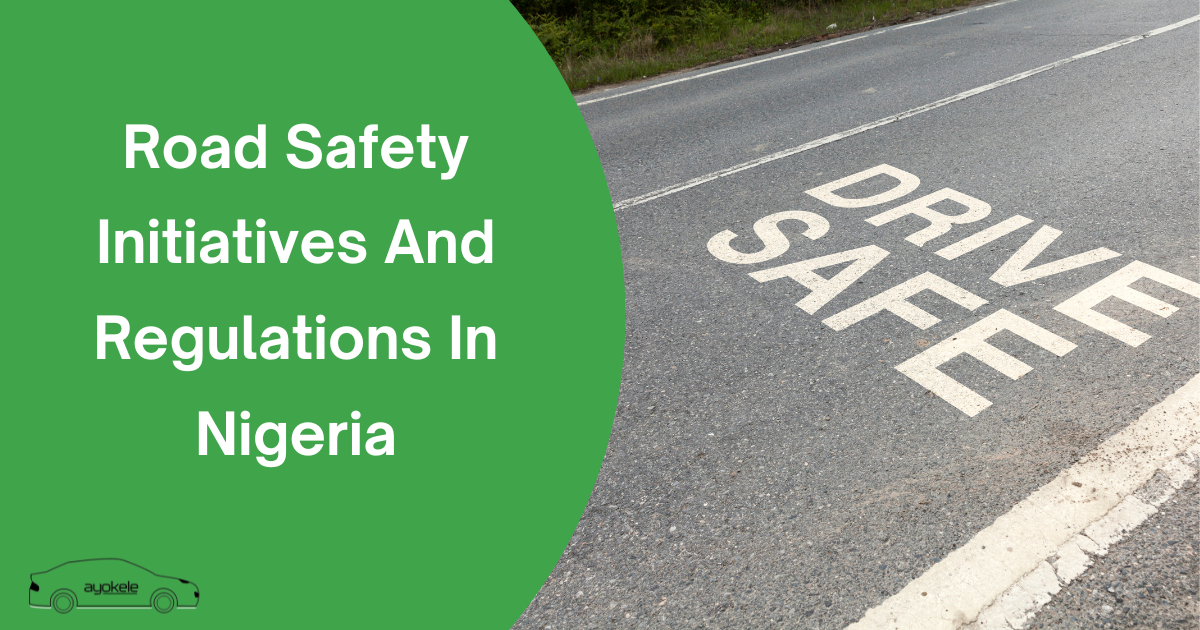Road safety is a major concern in Nigeria, where high traffic volumes, diverse road users, and varying road conditions contribute to frequent accidents and injuries. To address these challenges, the government and several organizations have introduced a range of initiatives and regulations to make the roads safer for everyone. Understanding these efforts is important for all road users, whether you are a driver, passenger, pedestrian, or cyclist.
Key Road Safety Initiatives
1. Establishment of the Federal Road Safety Corps (FRSC): The FRSC was created in 1988 as the main government agency responsible for road safety management in the country. Its duties include enforcing traffic laws, conducting public education campaigns, and responding to road accidents.
2. Public Awareness Campaigns: The FRSC and other organizations regularly run campaigns to educate the public about safe driving practices. These include radio and TV programs, school visits, community outreach, and the use of social media to spread messages about seat belt use, speed limits, and the dangers of drunk driving.
3. Road Safety Education in Schools: Road safety education has been introduced in many schools to teach children the basics of crossing roads, understanding traffic signals, and being alert as pedestrians or cyclists.
4. Introduction of Speed Limiting Devices: Commercial vehicles must install speed limiting devices to prevent excessive speeding, a leading cause of road accidents.
5. Regular Vehicle Inspections: Mandatory vehicle inspections ensure that cars, buses, and trucks on the road are in good working condition. This helps reduce accidents caused by faulty brakes, worn-out tyres, or poor lighting.
6. Improved Road Infrastructure: The government has invested in building and maintaining better roads, installing road signs, traffic lights, and pedestrian crossings, and constructing flyovers and pedestrian bridges in busy areas.
7. Emergency Response Services: The FRSC operates emergency rescue teams and ambulance services along major highways to assist accident victims quickly and reduce fatalities.
8. Collaboration with International Organizations: Nigeria works with groups like the World Health Organisation (WHO) and the United Nations (UN) to adopt global best practices in road safety and benefit from technical support and funding.
Important Road Safety Regulations
- Use of Seat Belts: All drivers and passengers must wear seat belts. Failure to do so can result in fines and penalties.
- Ban on Use of Mobile Phones While Driving: It is illegal to use a mobile phone without a hands-free device while driving, as this distracts the driver and increases the risk of accidents.
- Speed Limits: There are set speed limits for different types of roads and vehicles. For example, urban roads usually have a limit of 50 km/h, while highways may allow up to 100 km/h for cars and 90 km/h for buses.
- Prohibition of Drunk Driving: Driving under the influence of alcohol or drugs is strictly prohibited. Random breathalyzer tests are conducted, and offenders face heavy fines, license suspension, or imprisonment.
- Use of Helmets for Motorcyclists: Motorcycle riders and their passengers must wear helmets at all times to reduce the risk of head injuries in case of an accident.
- Child Safety Regulations: Children under a certain age or height must use appropriate child restraints or car seats when traveling in vehicles.
- Vehicle Documentation: All vehicles must have valid registration, insurance, and roadworthiness certificates. Driving without these documents is an offence.
- Traffic Light and Road Sign Compliance: Drivers must obey all traffic lights and road signs. Disregarding them can lead to accidents and legal penalties.
- Ban on Overloading: Vehicles, especially commercial buses and trucks, must not carry more passengers or goods than their approved capacity.
- Regular Driver Testing and Licensing: Drivers must pass both written and practical tests before being issued a license. Periodic renewal and re-testing help ensure that drivers remain competent.
Road safety in Nigeria is a shared responsibility that involves government agencies, private organisations, and every road user. Through strict regulations, public education, improved infrastructure, and enforcement, significant progress is being made to reduce accidents and save lives. By following these rules and supporting safety initiatives, everyone can contribute to making the roads safer for all.




